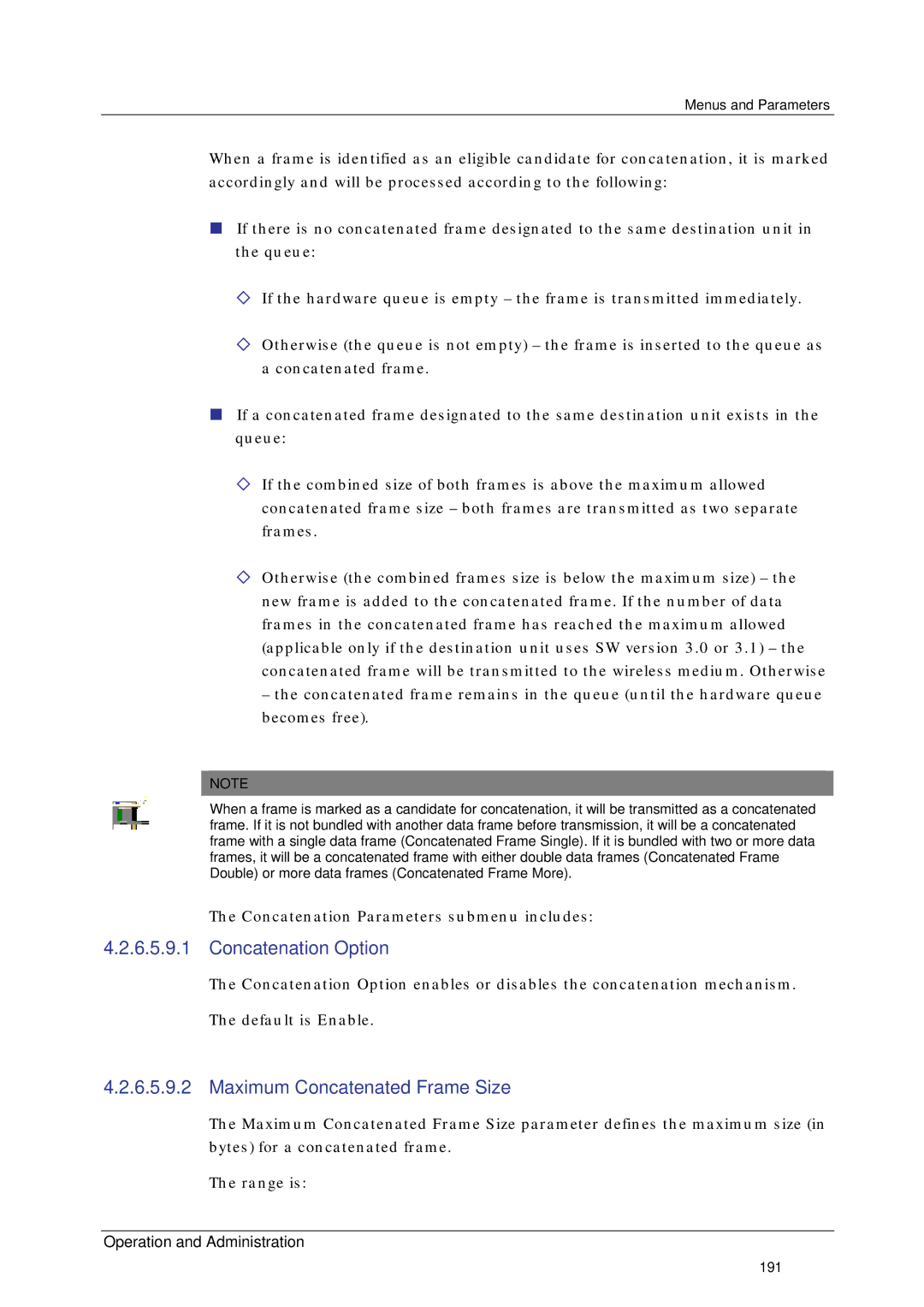
Menus and Parameters
When a frame is identified as an eligible candidate for concatenation, it is marked accordingly and will be processed according to the following:
If there is no concatenated frame designated to the same destination unit in the queue:
If the hardware queue is empty – the frame is transmitted immediately.
Otherwise (the queue is not empty) – the frame is inserted to the queue as a concatenated frame.
If a concatenated frame designated to the same destination unit exists in the queue:
If the combined size of both frames is above the maximum allowed concatenated frame size – both frames are transmitted as two separate frames.
Otherwise (the combined frames size is below the maximum size) – the new frame is added to the concatenated frame. If the number of data frames in the concatenated frame has reached the maximum allowed (applicable only if the destination unit uses SW version 3.0 or 3.1) – the concatenated frame will be transmitted to the wireless medium. Otherwise
– the concatenated frame remains in the queue (until the hardware queue becomes free).
NOTE
When a frame is marked as a candidate for concatenation, it will be transmitted as a concatenated frame. If it is not bundled with another data frame before transmission, it will be a concatenated frame with a single data frame (Concatenated Frame Single). If it is bundled with two or more data frames, it will be a concatenated frame with either double data frames (Concatenated Frame Double) or more data frames (Concatenated Frame More).
The Concatenation Parameters submenu includes:
4.2.6.5.9.1 Concatenation Option
The Concatenation Option enables or disables the concatenation mechanism.
The default is Enable.
4.2.6.5.9.2 Maximum Concatenated Frame Size
The Maximum Concatenated Frame Size parameter defines the maximum size (in bytes) for a concatenated frame.
The range is:
Operation and Administration
191
